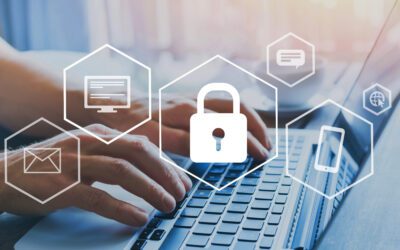If it seems like healthcare data is more difficult to protect these days than ever, that’s because it is. 2021 has turned out to be the worst year ever for healthcare breaches, with more than 44 million healthcare records exposed or stolen this year in the United States, according to HIPAA Journal.
Cyber criminals are finding new and more effective ways to steal patient’s protected health data. And the results can be devastating. Breaches this year resulted in the theft of records of medical procedures, social security numbers, passport information, credit card numbers, and more. Often, healthcare organizations are ransomed to get the data back. But often, organizations don’t know their data is up on the dark web for sale, record by record. Your best defense, as always, is a good offense, using mission-critical cybersecurity tools specifically designed to protect healthcare organizations. Your other best strategy is simply staying abreast of the latest cyber crime techniques.
From healthcare targeted ransomware to third party vendor and supply chain breaches, let’s look at the biggest threats to your healthcare data security, and ways you can prevent them.
What is the Biggest Threat to Healthcare Data Security? Your Employees
One fact remains unchanged: Your employees are still one of the biggest causes of healthcare data security breaches.
Unfortunately, many in the healthcare industry have a “it won’t happen to me” mindset, and that is a big data security no-no. Add to this mindset a lack of employee cybersecurity training, and the people you rely on the most can become unintentional sources of breaches and malware infections.
Healthcare Cybersecurity Recommendation: Your healthcare data security can have several levels to help your employees work safely. Single-sign-on strategies, Identity Access Management, and cybersecurity training are all important parts of keeping your practice safe and HIPAA compliant.
Your Medical Devices are Open Invitations for Bad Actors
HIPAA can dictate everything a healthcare worker does, from the phone system that your business uses to the medical devices you rely on every day. If you are using devices reliant on the Internet of Things (IoT), the costs of keeping those devices updated can be prohibitive.
Now, consider how these devices connect and send data. Medical devices use WiFi to send immediate results from the machine directly to a waiting doctor’s tablet. This embedded capability is vital to communication and connectivity, but it’s also a cybersecurity nightmare. What can you do to plug this vulnerability?
Healthcare Cybersecurity Recommendation: Secure your Wi-Fi connections and make sure all medical equipment is updated with the latest software.
Mobile Devices Pose Their Own Vulnerabilities for Healthcare Data Security
From physicians, to registrars, nurses, and administration, mobile devices connect your staff to the practice.
Healthcare decisions move at the speed of light, and practitioners and staff need to stay seamlessly connected, whether that be at home, multiple offices, or the field. In addition, many healthcare systems allow the patient to access their healthcare records online, and since the public at large is very lax about securing their credentials, this is its own healthcare data security issue. How can you keep all that moving data safe in transit?
Healthcare Cybersecurity Recommendation: Always make sure your mobile devices are updated, and that multi-factor authentication as well as Identity Access Management and single-sign-on strategies are being enforced. Require very stringent passwords for patients to create accounts to access their records.
Third-Party and Supply Chain Vendor Breaches
It’s nearly impossible for a healthcare practice to list all its suppliers and third-party vendors. To give you an understanding of how many people have indirect (and sometimes direct) access to protected data, let’s take a closer look:
- Payment processors
- Equipment manufacturers and repairs
- Medical supply vendors
- Miscellaneous supply vendors
- Legal teams
- Other connected specialists and practices
- Communications suppliers (phone systems, mobile device suppliers)
So, with all the ways criminals can target your organization, is it any wonder why healthcare is such a lucractive target?
Cyberattacks Targeting Healthcare Data Are on the Rise
Why is healthcare data theft on the rise? Because health data is a juicy target to criminals, who can sell each piece of this this highly revealing data for big money. After all, medical records are available for up to twenty years, and unlike a credit card or bank account hack, the odds of discovering a healthcare data security breach are very low. Your patient’s protected data includes information like:
- Social security numbers
- Names and addresses
- Dates of Birth
- Insurance information
- Financial information
- Next of kin names, addresses, and financial information
- Sensitive or embarrassing health data
All this information is valuable on the dark web. Think of your patients’ data as a one-stop shop for a determined bad actor.
Healthcare Cybersecurity Recommendation: Encryption is key for your patient data, as is controlling the amount of damage a cyberattack can cause by enabling Identity and Access Management solutions.
Integris Understands HIPAA and Healthcare Data Security
Integris understands the regulations that govern healthcare practices. We provide specialized IT services for our healthcare organizations to keep you safe and regulatory compliant. Our teams can provide the guidance you need to assess your practice’s healthcare data security.
Start your HIPAA compliance journey by downloading our Healthcare Essentials Kit. This is a must have healthcare IT kit that includes do-it-yourself HIPAA compliance checklists, webinars, eBooks, sample HIPAA device policies, and much more.



